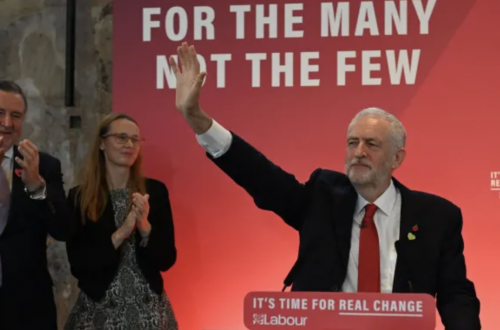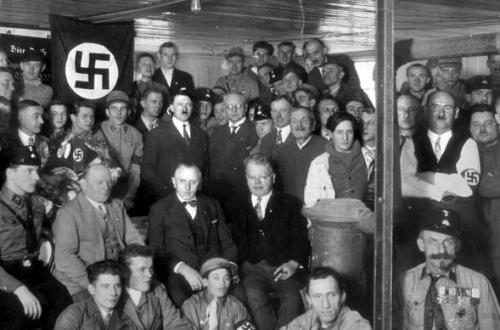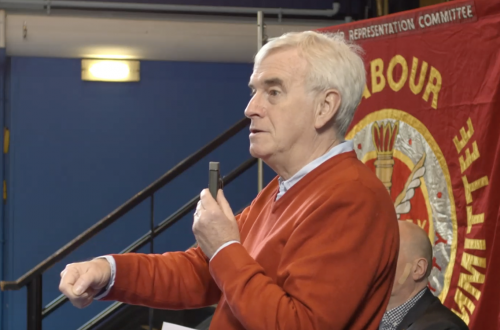According to this report, Sharia Councils are acting against UK law on issues such as child access, and advising women to stay in abusive relationships.
A woman whose husband had hit both her and her son was told that she would have to give her children up to her husband, even though UK courts had earlier severely restricted his access to them. It is alleged that she was told by the Leyton Sharia Council that ‘you can’t go against what Islam says’. When challenged, Leyton apparently said ‘safety is paramount and any UK court order must be followed’.
This sounds reassuring. However an undercover reporter was then sent to see how Leyton would respond to her complaints of an imaginary abusive husband. She claimed she was scared, but was warned off approaching the police and invited to consider whether it was her own fault. She was also asked whether she had made every effort to please her husband – whether she had taken care over her appearance.
One of the issues addressed in the programme was the problem faced by women who are not married under UK law. So it’s worth noting that many Muslim voices also advise women to make sure they don’t rely on the nikah alone. But the main point to note here is the danger of a parallel legal system which appears to be effectively unregulated. Nazir Afzal, Chief Crown Prosecutor for the North West, reacted with disappointment to the advice given by the councils, deploring the fact that it might put women in danger. It is a particular concern that women may feel pressured by their family or community into turning to the courts despite the fact that they are, at least in some instances, issuing such worryingly bad advice.
Update Not surprisingly, that programme did not meet with universal approval. So I just briefly want to consider whether there are justifications for thinking it unsatisfactory, even Islamophobic.
One tiny point which struck me early on – perhaps there was a slightly unnecessary focus on veiling as a kind of visual marker to cue the topic of ‘Muslim women’.
OK, maybe that’s slightly over-refined. More significant was the inclusion of Baroness Cox in the programme. Although I was certainly inclined to support her bill, I also think she is guilty of some hyperbole over the issue, claiming that stoning and whipping will be commonplace in this country if something isn’t done.
Still more controversially, she invited Geert Wilders to the House of Lords for a screening of Fitna, and said:
Geert Wilder’s ‘Fitna’ film (available on the web) is not a threat to anyone. It merely suggests how the Koran has been used by militant Islamists to promote and justify their violence.
I’m not sure ‘merely’ is the mot juste here. I think it would have been useful for Panorama to note that controversy briefly. Perhaps it would also have been helpful to acknowledge that some of the functions of the Sharia councils are similar to those of the Beth Din, and to other voluntary mediation services. Generally, presenting a more rounded picture – acknowledging that Sharia councils may in some cases intervene in a neutral or positive way – might have helped communicate the problems better to those who were watching the programme in order to be annoyed by it.
One further reason why the programme might seem* to resonate with, if you like, the EDL narrative is simply because many (not all) left/liberal commentators and politicians shy away from the issue. But the best way to deal with that fact is for more mainstream voices to engage, rather than allow the EDL to establish the tone of the debate. So, although maybe there was room for improvement in Panorama, the topic was certainly an appropriate one for scrutiny by the BBC. I have suggested it was selective in its focus on bad cases – but there’s a limit to what can be covered in a single short programme, and it’s not as though there haven’t been other similar reports of problems in UK Sharia councils.
Some nuance was offered by including the critical voice of Nazir Afzal, himself a Muslim, and by showing a Muslim woman asserting that the judgments of the councils were unislamic. However, Chris Harvey begins his Telegraph review by claiming that ‘the clash between our country’s values and those of Islam was highlighted in a disturbing edition of Panorama’. Considering that Muslims are amongst those campaigning for Baroness Cox’s bill, that seems an unhelpful summary.
*I wanted to emphasise the word ‘seem’ there, and not suggest that the programme’s position was in fact EDL.


